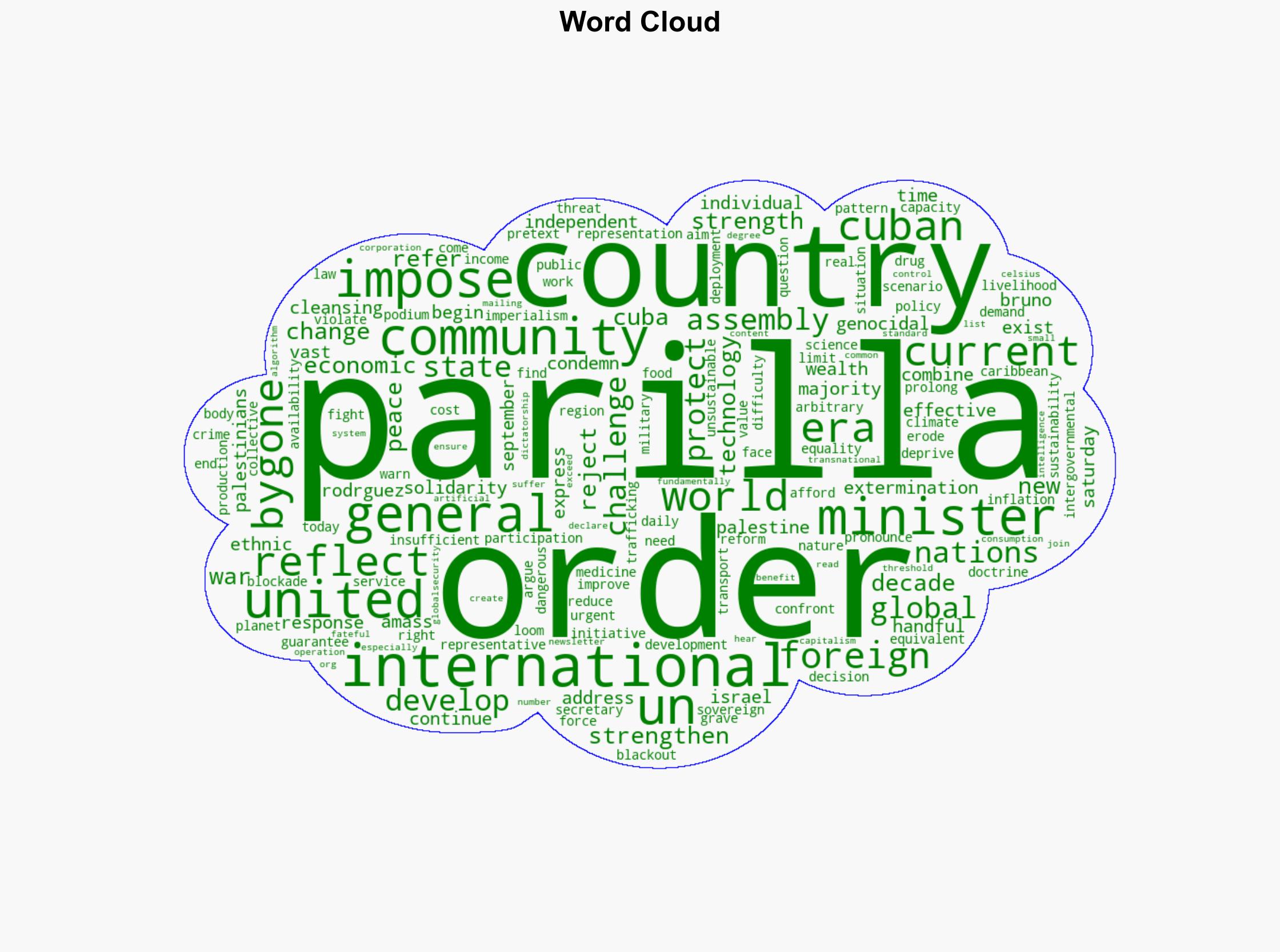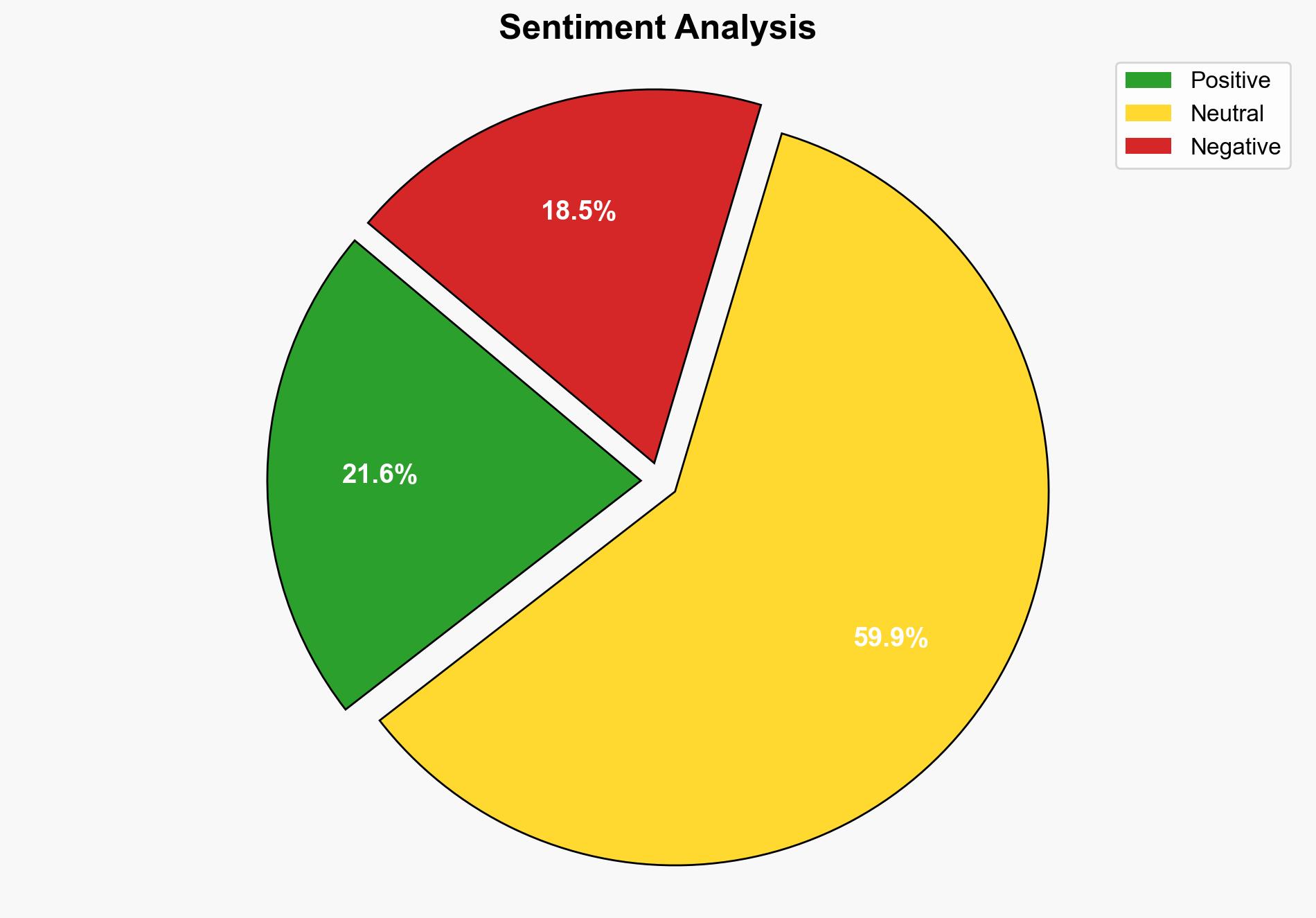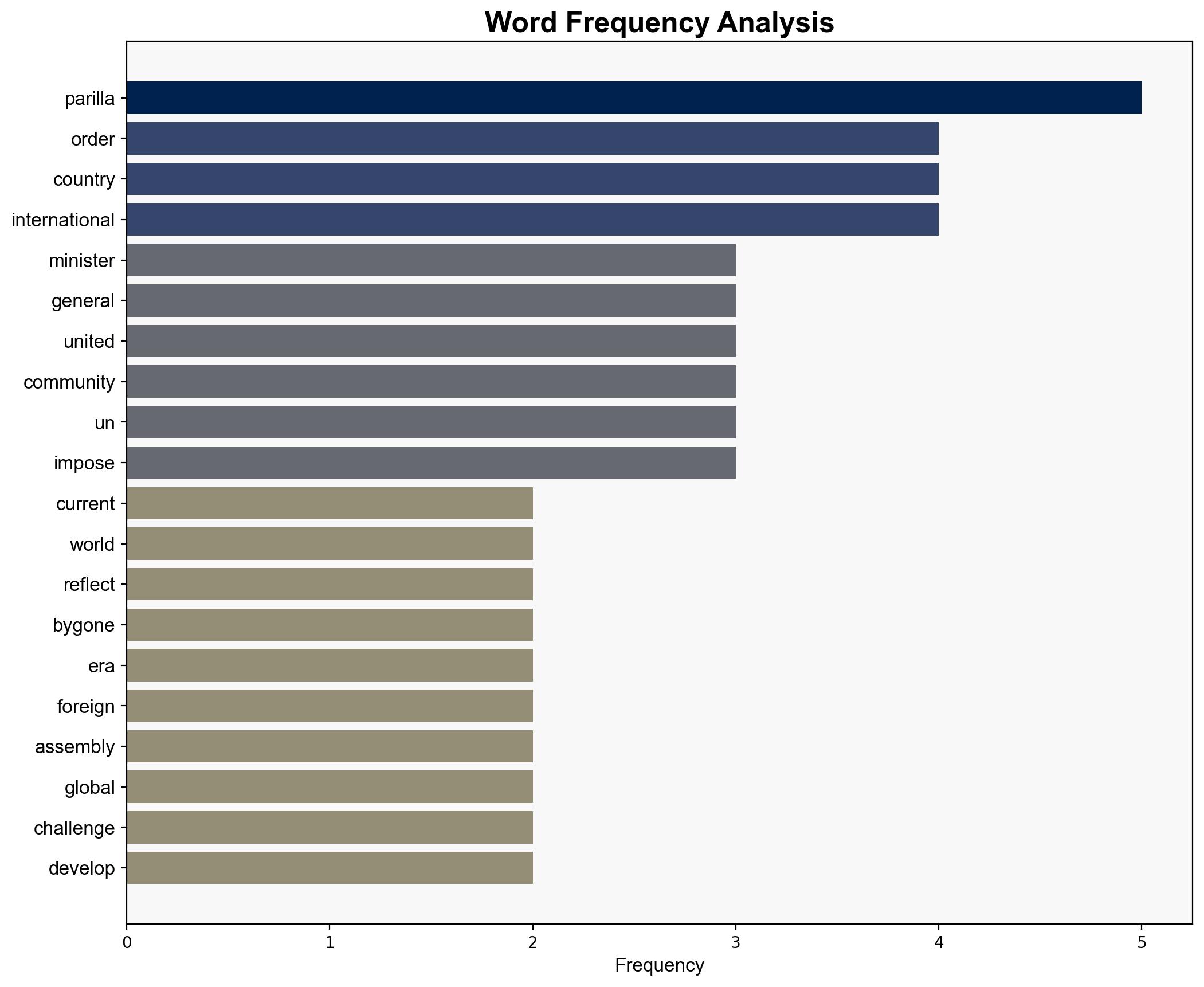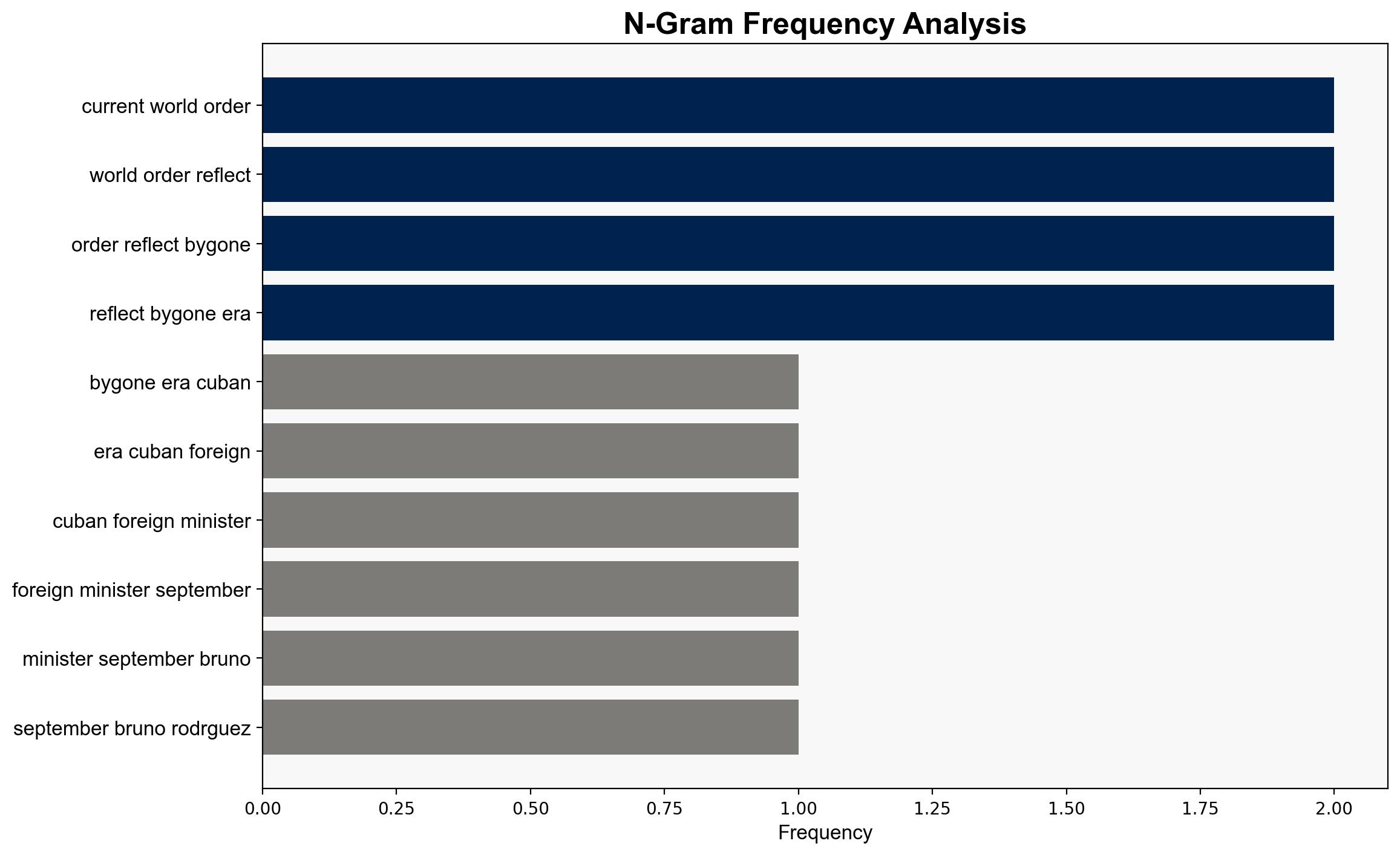Current world order ‘reflects a bygone era’ says Cuban Foreign Minister – Globalsecurity.org
Published on: 2025-09-29
Intelligence Report: Current world order ‘reflects a bygone era’ says Cuban Foreign Minister – Globalsecurity.org
1. BLUF (Bottom Line Up Front)
The Cuban Foreign Minister’s address highlights a call for a reformed global order that accommodates developing nations’ interests. The analysis suggests two hypotheses: one where Cuba seeks genuine reform for equitable global governance, and another where Cuba aims to bolster its geopolitical stance by aligning with other nations dissatisfied with the current order. The most supported hypothesis is the latter, given historical patterns of Cuba leveraging international platforms for strategic alliances. Confidence level: Moderate. Recommended action: Monitor Cuba’s diplomatic engagements and rhetoric for shifts indicating broader geopolitical strategies.
2. Competing Hypotheses
1. **Hypothesis A**: Cuba is genuinely advocating for a reformed international order to ensure equitable development and representation for developing countries.
2. **Hypothesis B**: Cuba is using the call for reform as a strategic maneuver to strengthen its geopolitical influence and align with other nations opposing the current global power dynamics.
Structured Analytic Technique: Using ACH 2.0, Hypothesis B is better supported due to Cuba’s historical use of international platforms to challenge U.S. policies and align with other nations under similar pressures.
3. Key Assumptions and Red Flags
– **Assumptions**: Hypothesis A assumes Cuba’s primary motivation is equitable global reform, while Hypothesis B assumes strategic geopolitical positioning.
– **Red Flags**: The lack of specific reform proposals from Cuba could indicate a broader strategic agenda rather than genuine reform efforts.
– **Blind Spots**: Potential underestimation of Cuba’s capacity to influence global governance reforms.
4. Implications and Strategic Risks
– **Economic**: Potential shifts in trade alliances if Cuba aligns with other dissatisfied nations.
– **Geopolitical**: Increased tensions with the U.S. and allies if Cuba’s rhetoric gains traction.
– **Cyber**: Possible increase in cyber activities as Cuba seeks to assert its stance.
– **Psychological**: Heightened nationalistic sentiments within Cuba, influencing public opinion and policy.
5. Recommendations and Outlook
- Monitor Cuba’s diplomatic activities and alliances for shifts in geopolitical strategies.
- Engage in dialogue with other nations expressing similar dissatisfaction to understand broader implications.
- Scenario-based projections:
- Best: Cuba’s call leads to constructive dialogue and incremental reforms.
- Worst: Escalation of tensions with the U.S., leading to increased regional instability.
- Most Likely: Cuba continues to leverage its position for strategic alliances without significant reforms.
6. Key Individuals and Entities
– Bruno Rodríguez Parrilla
– United Nations
– United States
7. Thematic Tags
national security threats, geopolitical strategy, international diplomacy, regional focus




